خواطر اغسطس 2017
-
*هذا ما جلبتوا لنا.... لقد تعددت المجالس التشريعية والحكومات في ليبيا منذ
2014 واستمرت فانتجت حروبا دمارا ومجاعات وتدني الخدمات برلمان مجلس رئاسي
مجلس ...
الاثنين، 22 يونيو 2009
Human Rights body finds itself on shaky ground
Rights Council special session on Sri Lanka (Keystone)
Related stories
30.05.2009 UN under fire over Sri Lanka response
28.05.2009 Amnesty warns of human rights "time bomb"
24.04.2009 Anti-racism summit ends with a small miracle
The latest session of the United Nations Human Rights Council, which ended this past week in Geneva, was marked by a series of attempts to weaken the body.
Diplomats and non-governmental organisations have expressed concern over efforts by some states, including Cuba, China and Brazil, to muzzle independent reporting.
An open letter was addressed to the Council on June 11 by 35 organisations including Amnesty International (AI) and Human Rights Watch (HRW). "We are witnessing an aggressive strategy against the Council's mandate, through personal attacks on the special rapporteurs," said Julie de Rivero, head of HRW in Geneva, explaining the gist of the letter.
For many observers, a point of no return was reached during a special Council session on Sri Lanka in late May. The Sri Lankan government was able to impose the principle of non-interference in order to refuse an on-the-spot independent investigation.
During the session on Sri Lanka, Brazil co-sponsored a resolution that affirmed the long-discredited principle of non-interference in domestic affairs.
The resolution, HRW said, ignored allegations echoed by the UN High Commissioner for Human Rights that war crimes may have been committed by both government forces and the rebel Tamil Tigers and should be investigated by an independent inquiry or commission.
For the Swiss ambassador to the UN, Dante Martinelli, "attempts to restrict the autonomy of the High Commissioner and special procedures are increasing. The Council prescribes how states should treat their own residents, which for a number of countries is an open challenge to their national sovereignty," he said.
Swiss ambassador to the UN in Geneva, Dante Martinelli (swissinfo)
"Real threat"
"This argument is mentioned with increasing frequency by a number of states and this is a real threat to the promotion of human rights."
Sri Lanka was not the only case. There have been unrelenting attacks on the deployment of experts and the idea of freedom of expression, as well as moves by Cuba and China to muzzle NGOs during the "Universal Periodic Review" (UPR) of these countries.
"When we arrived on June 9 at 8am just after the UN opened for us to register to speak during during the UPR for Cuba, there were already ten NGOs queuing at the desk," says de Rivero.
"Yet the list is limited to ten, and all of these NGOs were pro-Cuban. We were informed that diplomats had let them into the building at 6:30 am, which is not allowed." After a dispute, two independent NGOs were finally given the chance to speak.
"This area is important because independent NGOs cannot enter Cuba. The country, which has not ratified the major treaties, does not appear before UN committees. The periodic review is the only time when these states are obliged to hear dissenting voices," said Julie Gromellon from the International Federation of Human Rights (FIDH).
And Muslim states resumed efforts to impose the notion of defamation of religions, departing from the text on anti-racism, the "Durban Declaration", which was adopted at an international conference in Geneva in April. This attempt showed that the divide between North and South remains strong.
Sudan
States were also polarised in regards to Sudan, even if African governments did not present a united front. A resolution proposed by Egypt in the African group to remove the mandate of an Independent Expert (IE) for Sudan, was opposed by Uganda.
But a series of amendments put forward by the European Union including the renewal of the mandate for a one-year term for an IE in Sudan was approved by a narrow majority (21 versus 20).
"The Council is a body that best reflects the tensions of a changing world and antagonisms between blocks, especially between countries that are growing in stature and the North," commented Martinelli.
"It was a tumultuous session, but the result on Sudan showed that the new dynamic – to promote trans-regional dialogue - launched with the special session on Sri Lanka is beginning to bear fruit," said another Western diplomat. "Sri Lanka was a lost cause, because Colombo remained confrontational. But it was more nuanced for Sudan."
He added that the arrival of the US also made a difference. Washington, which joined the Council on June 19, has been involved in intense discussions since the beginning of the year.
Carole Vann in Geneva, InfoSud/swissinfo.ch (translated and adapted by Dale Bechtel
الاشتراك في:
تعليقات الرسالة (Atom)














































































































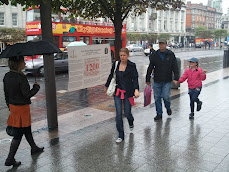










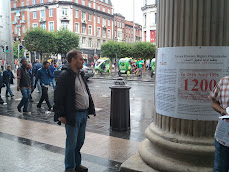









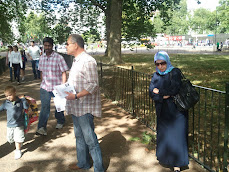
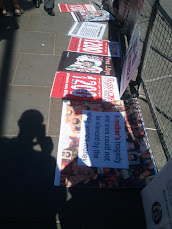














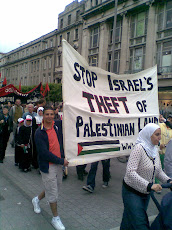







ليست هناك تعليقات:
إرسال تعليق